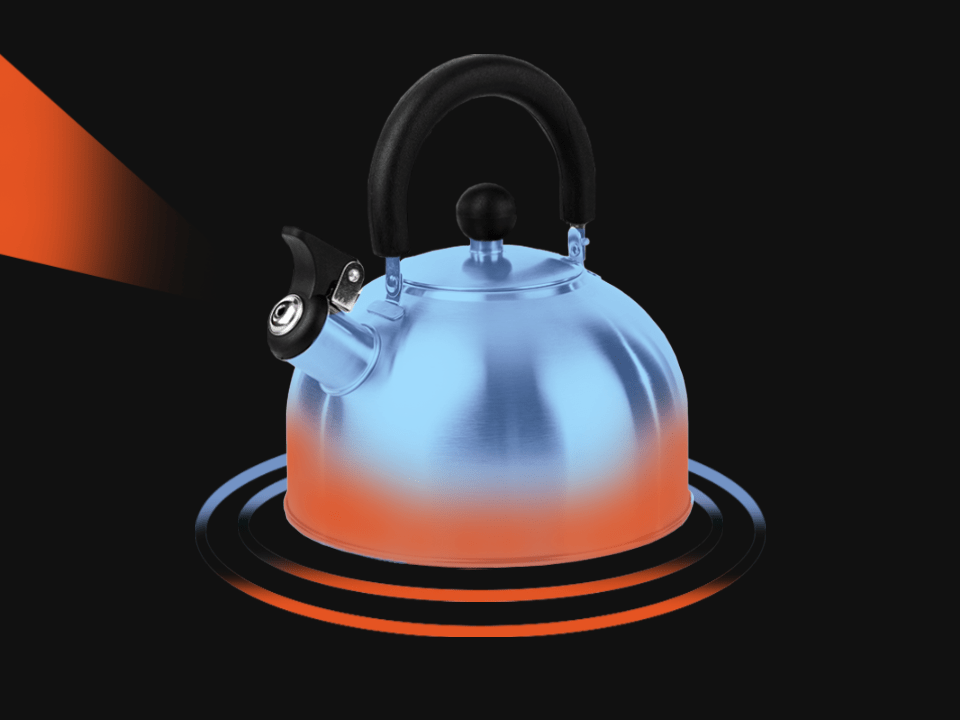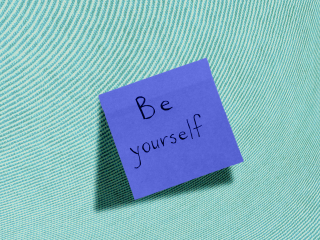How to Turn Your Anger Into Something Productive
Let's talk about channeling your rage in a healthy-ish way.
A friend flaked on your plans and you’ve been stewing about it for a week. A mediocre colleague got a promotion while you got passed over again. The world is a dumpster fire of injustices and inequality. Basically, there’s a lot to be angry about. And when things are as rage-inducing as they are now, you often see and hear a lot of well-meaning platitudes about managing your anger, like: Let that anger fuel you. Or: Channel your anger into action. Which…sure. But also…how?
Before we get into how to use your anger for good, let’s establish one thing: It’s totally fine to be angry. Really. Anger is an emotion we feel in response to a real or imagined threat, injustice, or provocation. Channeled in the right ways, it can be an incredibly motivating force. Research even shows that anger has been key to human survival because it helps people face and overcome obstacles.
“Sometimes anger feels good. Sometimes it can motivate us, focus us, protect us. Consider the character of Anger in Pixar's movie Inside Out,” says Zach Brittle, LMHC, a certified Gottman therapist in Seattle specializing in couples and relationship therapy. “Anger can be a useful emotion.”
“It’s important for people to know that their anger isn’t inherently bad and exists to alert them to problems and energize them to confront those problems,” says Ryan Martin, PhD, an associate dean and professor of psychology at the University of Wisconsin, Green Bay, and author of Why We Get Mad. “The goal then should be to feel it in the ways that are most healthy and channel it into productive directions.” In other words, don’t just sit and stew in your angry feelings for too long—and don’t just push it down either. Consider what you can do with this anger to help you work through it—and maybe even get something productive out of it.
First, some not-so-great ways to deal with anger.
Bad stuff tends to happen when anger isn’t properly channeled, like when we suppress it, ruminate on it, or hurt ourselves or others as a result of it.
Because anger evokes your body’s fight, flight, or freeze response—think tensed muscles, a quickened heart rate, a surge of stress hormones and adrenaline—ignoring or suppressing it will usually just make it grow in its intensity. Plus, all that pent-up anger can lead to a host of mental and physical health issues. Think anxiety, high blood pressure, heart disease, digestive issues, and headaches.
Unfortunately, rumination is a really common response to anger. Rumination is when you’re repeatedly rehashing something that you’re upset about and you get stuck in a spiral that doesn’t move you towards any new ways of thinking, new possibilities, or new solutions. You’re basically just stewing in your rage.
“My research has found that people who ruminate are more likely to get angry and more likely to express that anger in maladaptive ways, especially through suppression or avoidance,” says Dr. Martin. “People who hold their anger in or avoid conflict are more likely to ruminate. You’re hung up on the situation and maybe what you didn’t say, so you replay it in your mind.” Yeah, been there.
Blowing up in anger is equally unhelpful. Loud, aggressive displays of anger may initially seem to pay off, because you do get that release of tension and maybe even some new sense of control over the situation (“I screamed at my friend, but she’s finally listening to me!” or “I really gave my colleague a piece of my mind!”). But in the long term, these “apparent payoffs,” as they’re called in therapy, often have long-term negative consequences that outweigh the short-term gains (like ruining your relationships or getting a bad reputation at work).
“What we want to avoid more than anything with anger is doing things that hurt ourselves or the people around us,” says Dr. Martin. Cool, so what should you do instead? Here are some ground rules for processing and expressing your anger in ways that can actually benefit you. You can thank us later.
Before you do anything, take a timeout.
“The first and best thing to do when you’re angry is to pause,” says Brittle. Before responding, take a beat to separate yourself from whatever’s provoking you and process what’s happening “at least long enough to make sure you still have access to your wise mind,” he says.
Even if someone is standing there waiting for a response from you, give yourself permission to pause for a moment—you could even let them know that you are intentionally slowing the situation down. Let’s be realistic here that pausing isn’t likely to make you less mad, but that’s not the point. It’s just about giving yourself the space to make informed decisions rather than rapid-fire ones. You’re arming yourself with a wider range of options for what you could do about it, rather than reacting in an emotionally charged way that could cause yourself or someone else harm.
Take (literal) notes on why you’re so mad.
Doing some self-reflection probably isn’t top of mind for you when you’re extremely heated, but hear us out: If you can reflect on why you’re upset, you’ll be able to more readily understand and track your triggers, so you can be more prepared next time you’re in a similar position.
One way to tap into that self-knowledge is journaling when you feel angry, or even just jotting some observations down in the Notes app of your phone. Say you get angry when you feel like someone is unfairly judging you. Maybe there’s a specific judgment you feel especially sensitive to. Do you tend to get really angry when you feel judged or attacked for that specific thing? Maybe you’ll realize you have some personal insecurities that you want to work though. Or you can remind a friend that certain phrases feel like judgments to you and really hurt.
Developing self-awareness about your anger triggers can help you tap into emotions or insecurities you may have been suppressing (which you might want to talk to a therapist about). It can also help you recognize your values and priorities, unlocking what really matters to you and helping you get better at communicating that to the people around you.
Get anger out of the body with movement.
“I joke about taking up kickboxing [to deal with anger], but exercise is a really great way to release all kinds of energy...especially negative energy,” says Brittle.
If you’ve ever gone on a run or played a game of basketball when mad, you’ve probably experienced that physical activity is an A+ way to release pent-up frustration and anger. Not only does it take your mind off what's riling you up, but getting your body moving boosts levels of feel-good chemicals like serotonin in the brain.
Research also links anger to the neurotransmitter norepinephrine, which aids your fight-or-flight response. In other words, anger can be energizing! Instead of trying to make yourself calm when you don’t feel anywhere near calm, you could pour that energy into something that makes you feel good, like a hike, a dance cardio class, or even cleaning out your closets. Win-win.
Throw that anger into something creative.
So many creatives have spoken about channeling their anger into art, music, or writing—which not only helps you process what you’re feeling but can also benefit others.
In fact, research has suggested that anger can lead us to be more creative. A series of three studies examining creativity as a function of anger found that angry people were more likely to brainstorm in an unstructured way that’s consistent with creative problem solving, and they generated more original ideas than people who were feeling sad or not emotional. But that creative advantage didn’t last for long, quickly petering out because of how taxing feeling angry is.
To put this knowledge into action when you feel a rise of anger, try doing something creative immediately. Grab a pen and jot down a stream-of-consciousness piece of writing, pick up a paintbrush and lay the foundation for a new piece of art, or do some intense brainstorming for a project at work. Start the project then walk away and come back to it later. Not only will you redirect your angry energy from a potentially negative outcome (like blowing up or ruminating) but you’ll have started a creative project that might become something you’re really proud of.
So go ahead, let your anger fuel a song or painting you’ve been wanting to create.
Find the next smallest step you can take.
It can be really tempting to jump right into action when you’re angry about a big, lofty problem. And letting our anger motivate us to affect change is certainly not a bad idea. But it can also be overwhelming at times and, if you aren’t careful, can make you feel more helpless than empowered. Especially when the source of your anger is something that feels so out of your control or impossible to handle on your own—like systemic racism, climate change, or getting out of an abusive relationship or work situation.
Whether your anger stems from something in your own life, a larger world issue, or both, start by thinking about what a realistic first step could look like. Maybe that's reaching out to someone you trust to get their support, polishing up your resume, researching anti-racism organizations that you can get involved with, or showing up to a protest in your community. Consider the small, actionable steps you can take towards addressing this issue (and, in turn, your anger), rather than assuming any action you take has to “solve” the issue or eliminate your anger entirely.
Ask yourself: How can I process this anger in a way that also helps me be of assistance? Maybe that’s voting, protesting, organizing, or writing letters to a congressperson. “If being loud about your anger will help change the lives of yourself or others who need help, it’s probably a good time to let it fuel you,” Dr. Martin says.
Consider talking to someone to about that rage.
Venting to friends is a tempting way to blow off steam and let those around you know you're angry, but it can backfire if those people feed your flame rather than help you dial it down.
If you’re looking for a safe and productive outlet for life-disrupting anger, give therapy a try. Cognitive behavioral therapy (CBT) is a common and effective form of therapy used to treat anger. A CBT therapist can help you understand your negative or limiting beliefs and reframe them and also teach you how to react in healthier ways when you feel your anger rising.
Remember, it’s totally fine to be angry—and it’s also fine to occasionally stew in it, downplay it, or even stoke it with the help of the group chat. But, in the long run, channeling your anger in productive ways can help you have a healthier relationship with your ragey feels.
Wondermind does not provide medical advice, diagnosis, or treatment. Any information published on this website or by this brand is not intended as a replacement for medical advice. Always consult a qualified health or mental health professional with any questions or concerns about your mental health.




